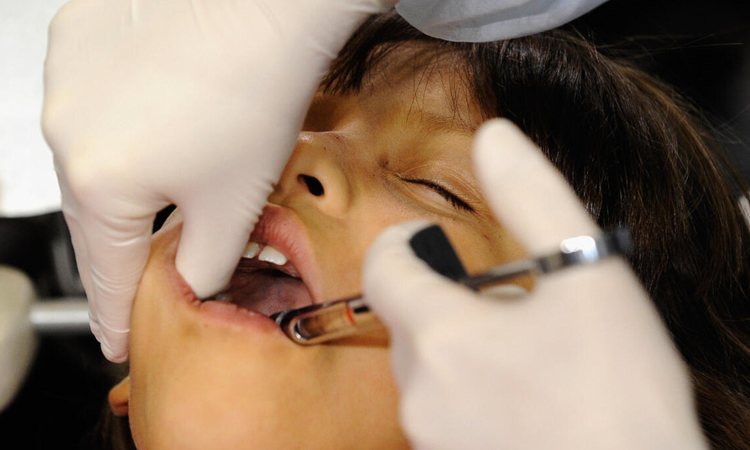News Flash
News Flash

GENEVA, Nov 8, 2025 (BSS/AFP) - Countries agreed Friday to phase out the use of mercury-based dental amalgams in tooth fillings by 2034, in a move that will change dentistry around the world.
At a conference in Geneva, signatories to a treaty aimed at protecting human health and the environment from mercury pollution called time on mercury amalgams.
Nations agreed "to end the use of dental amalgam by 2034, marking a historic milestone in reducing mercury pollution", the conference announced in its closing statement.
The World Health Organization considers mercury one of the top 10 chemicals of major public health concern, calling it "toxic to human health".
Some countries have already banned its use in dental amalgam, a common filling material used for more than 175 years.
The Minamata Convention on Mercury is an international treaty to protect human health and the environment from the adverse effects of mercury and mercury compounds.
More than 150 countries are party to the convention, which was adopted in 2013 and came into force in 2017.
Parties at this week's conference adopted amendments "establishing a global phase-out of dental amalgam by 2034", the closing statement said.
"This science-based, time-bound agreement marks a decisive step toward the total elimination of mercury use in dentistry and a safer future for all communities."
- African initiative -
The treaty already stipulated that signatories must take measures to phase out the use of mercury-based dental amalgams.
However, a bloc of African countries wanted a deadline, with a ban on their production, import and export, starting in 2030.
As the conference opened Monday, US Health Secretary Robert F. Kennedy Jr. asked why mercury was deemed "dangerous in batteries, in over-the-counter medications and make-up", but acceptable in dental fillings.
"It's inexcusable that governments around the world still allow mercury-based compounds in healthcare -- and safe alternatives exist," he said in a video message.
A few countries opposed the idea of a phase-out by 2030, including Iran and India, and Britain, which said it was too soon.
But countries came together and agreed a phase-out by 2034.
"We have just opened the door to another chapter of the mercury history book," said the convention's executive secretary Monika Stankiewicz.
"Mercury pollution is a scourge."
However, "by understanding one another and bridging our differences, we can make a difference in the lives of people everywhere".
The European Union's representative called it "an important milestone in making mercury history: a step that will bring lasting benefits for human health and the environment globally".
Mexico, speaking for the Latin American and Caribbean countries, called it an "ambitious but realistic step towards a future free from mercury".
- Skin-lightening cosmetics -
Overall, the conference adopted 21 decisions aimed at better protecting human health and the environment from mercury pollution.
Countries also agreed to step up efforts to eliminate skin-lightening cosmetics containing mercury, through curbing illegal trade and strengthening enforcement.
When added to cosmetics, mercury lightens the skin by suppressing melanin production. However, the process is not permanent and is dangerous to health.
The conference heard that sales of such products have soared, especially online.
Countries also moving away from the use of mercury in small-scale gold mining, and the feasibility of mercury-free catalysts for the production of vinyl chloride monomer (VCM) -- a key component of PVC plastic.
The conference's president Osvaldo Alvarez Perez said: "We have set ambitious new goals, and left mercury a little further behind."